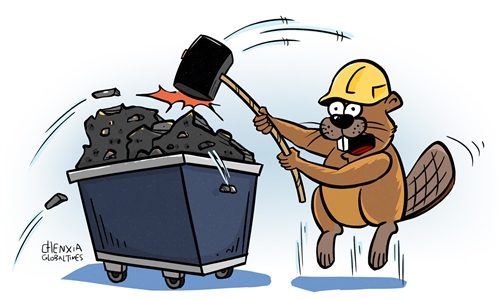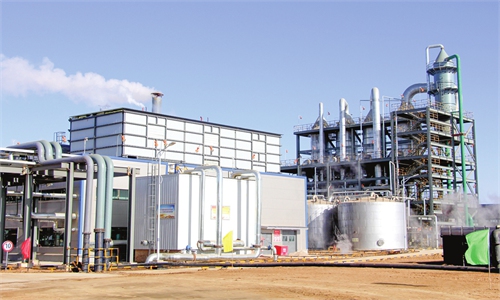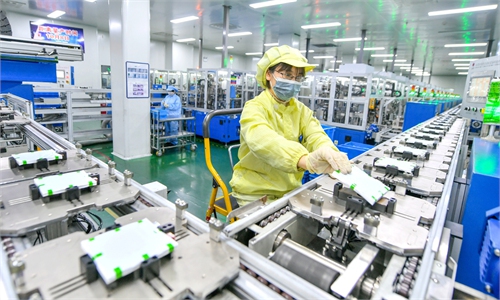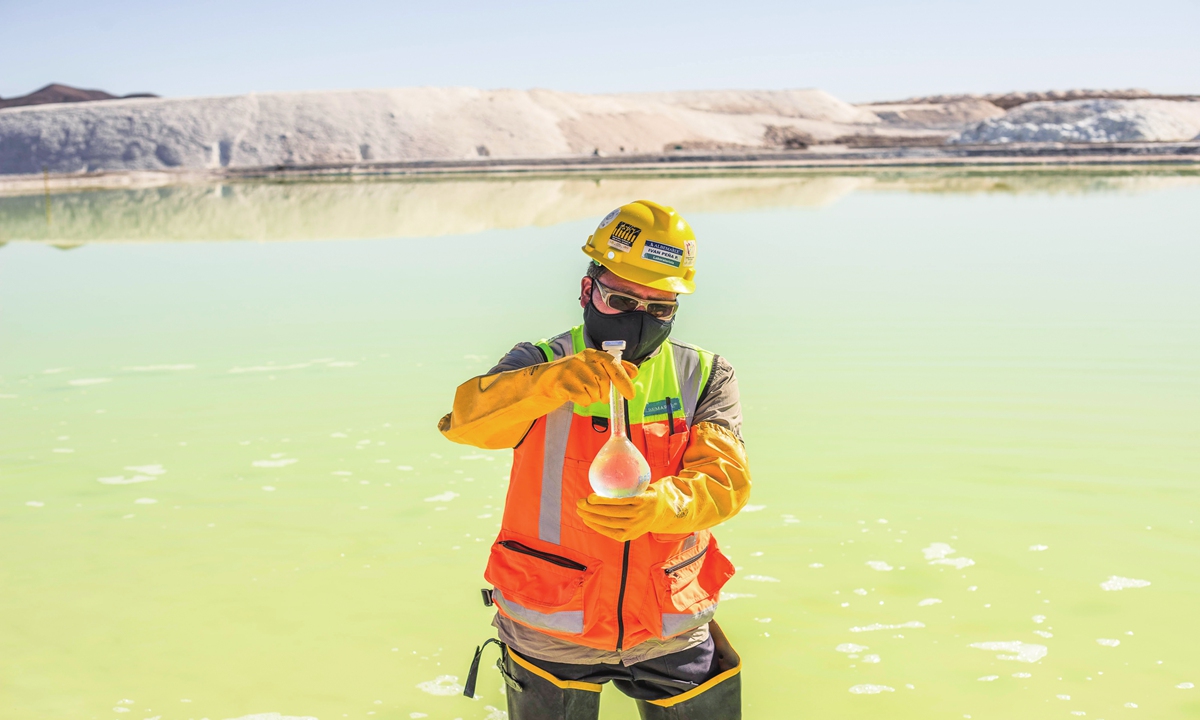
A mine worker takes water samples from a brine pool at a local Lithium mine in Calama, Antofagasta region, Chile. Photo: VCG
Chinese companies are closely watching Chile's plan to nationalize its vast lithium industry, a move by the world's second-largest producer of the material that's essential for the new-energy vehicle (NEV) sector. Industry insiders said the plan, which is still being finalized, will have a negative impact on the prices and volumes of lithium imports to China, currently the world's largest producer and consumer of NEVs.
Chile's President Gabriel Boric announced the plan in a national broadcast last week. According to a CNBC report, Boric said that private companies will have to work with the government in exploiting lithium, and the state would take a controlling interest in each partnership.
China's Tianqi Lithium Corp said on Monday that it is monitoring the situation. Tianqi said that it mainly sources lithium from Australia's Greenbushes mine, and it doesn't import lithium carbonate or other lithium products from Chile, domestic news portal thepaper.cn reported.
Tianqi has purchased a 22.16 percent stake in Chilean miner SQM. The company, along with US-based Albemarle Corp, mines lithium in Chile, with concessions set to expire in 2030 and 2043.
Tianqi said it only acquires investment income from SQM's operation, as its relationship with SQM is "based on the stake it holds," the report said.
According to CNBC, Boric said that existing contracts will be honored, while expressing optimism "they could find a way to boost state participation in their operations before they expire."
Another Chinese lithium company, Ganfeng Lithium, said it mainly imports lithium minerals from Australia and its imports from Chile are "quite small," news website yicai.com reported.
Chinese NEV-maker BYD has not commented on how the plan could affect its business in Chile.
BYD has been awarded with certificate that allows it to build factory and produce lithium iron phosphate (LFP) cathodes material in Chile. The factory, with an investment of $290 million, will produce 50,000 tons per year of LFP cathodes and is scheduled to start operating in 2025, according to a statement the company sent to the Global Times on Monday.
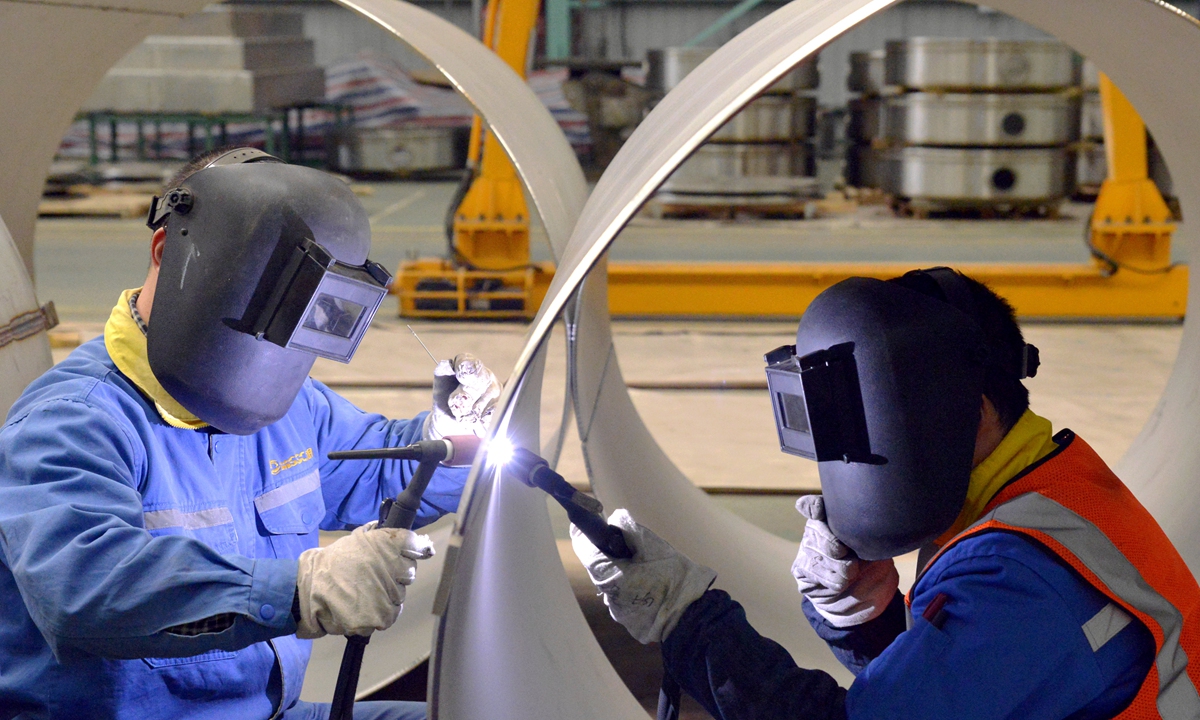
Two welders work together inside an industrial park in Taizhou, East China's Jiangsu Province on March 13, 2023. Electric cars, solar products and lithium batteries were China's export highlights in 2022, with the value of solar product exports growing 67.8 percent year-on-year, according to media reports. Photo: VCG
Mo Ke, chief analyst at Zhenli Research, told the Global Times on Monday that the plan could face pushback from interest groups that back Chilean lithium firms."But it is highly likely that the plan will proceed and affect global lithium supplies," Mo said, and also reduce interest in the private sector for local lithium mining.
China, with a burgeoning NEV industry, has a high reliance on lithium imports. Last year, its lithium carbonate imports from Chile accounted for 89.5 percent of total imports. In the first quarter this year, China imported 38,970 tons of lithium carbonate, up 41.7 percent year-on-year, customs data showed.
Industry insiders warned that Chile's plan could weigh in on China's supply of the strategic resource. They urged faster progress on domestic technology breakthroughs for extracting lithium from salt lakes, to secure supplies and cope with global price fluctuations.
Creation of the new state company would require the approval from Congress of Chile, according to CNBC.
Mexico nationalized its lithium deposits last year. Argentina, Bolivia, Chile and Brazil may set up an OPEC-like organization for the mineral, according to media reports.
